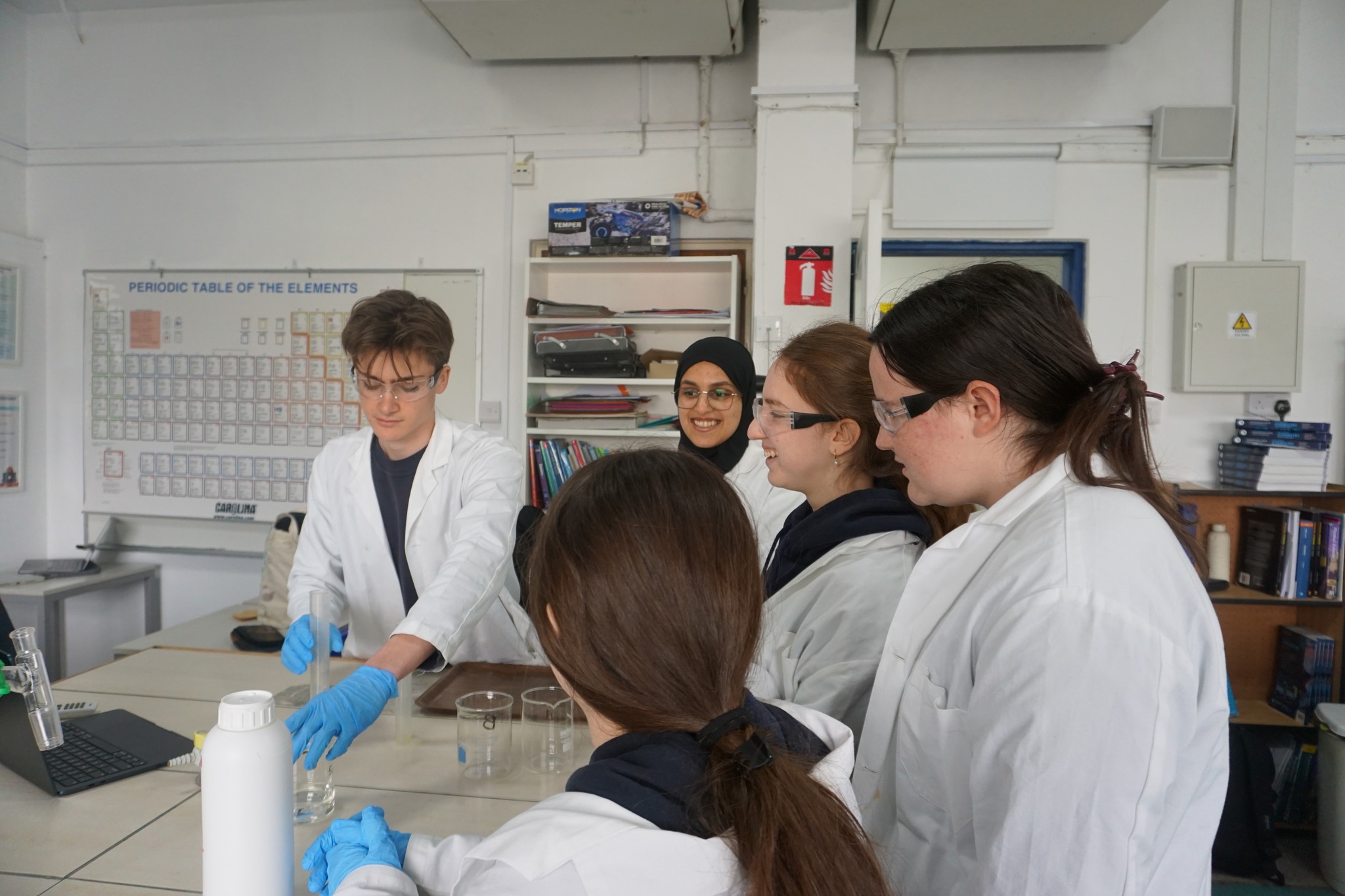There are benefits to both and it really is very difficult to choose between a broad and balanced curriculum and the focus and depth of a narrower choice
By Philippa Tracy
Thirty years ago, only one school in Cyprus was an IB World School, offering the International Baccalaureate (IB) qualification. That was the American International School in Nicosia (AISC). If you look on the IBO website today, you will find that there are now five IB schools, across the whole island, authorised to deliver IB programmes in English. All five offer the IB Diploma programme and one, The Island Private School in Limassol, is authorised to deliver the Primary and Middle Years Programmes as well. This school was recognised as an IB World School last year.
This group of five schools is a small proportion of the number of private schools in Cyprus that teach in English, many of which offer A-Levels. There are three that offer both: two of the campuses of Pascal International Education: the Pascal Private Secondary School in Nicosia and Pascal Secondary School in Larnaca. They have both been offering the IB Diploma programme for almost 20 years. Both also offer IGCSEs and A-Levels, as does The English School of Kyrenia, which has been an IB school since 2012. Other schools are introducing programmes with them at different stages of development. The increased demand for IB programmes begs the question of what it is that attracts students and parents looking for an education in English language to choose IB rather than A-Levels.
A-Levels have been offered in one form or another for almost 75 years. They have often been referred to as the “gold standard” of English education. Cambridge International AS and A-Levels are taught in over 130 countries worldwide, including, of course, Cyprus. Edexcel A-Levels and International A-Levels are also taught in Cyprus, as well as many other countries. By contrast, the IB Diploma, was set up as a programme of international education. It was first sat by students in 12 schools across five continents in the early 1970s and now offers programmes across nearly 6,000 schools in over 160 countries. It is underpinned by an international philosophy: the IB mission statement says that it “aims to develop inquiring, knowledgeable and caring young people who help to create a better and more peaceful world through intercultural understanding and respect.”
Students studying A-Levels normally study only three to four subjects, across two years, whereas IB students study six subjects plus three core components. This is because the IB structure is more complex; students are required to take a mixture of humanities, science, arts, languages and maths, as well as the core components, which includes a 4,000-word extended essay based on independent research. The other core components are a critical thinking course called Theory of Knowledge (TOK) and a community project called Creativity, Activity & Service (CAS).
There are further differences. With A-Levels, the final grade is usually determined by exams at the end of two years. The IB assessment is more balanced between coursework and exams. And results are out in early July, giving IB students confirmed university places in the UK before A level students, whose results come out in late August.
Students doing IB take three subjects at Higher Level (HL) and three at Standard Level (SL). The way these work is that the guided learning hours are a lot fewer than for an A-Level or an AS-Level, which is basically half an A-Level that requires half the time to complete. An AS is similar to an IB subject at SL, although there are still more learning hours in an AS.

While some concerns have long been raised about the narrowness of A-Levels compared to the IB, many argue that what A-Levels offer is focus, depth and choice. Students studying IB can choose what they study but they must take subjects from set subject areas. And there is no escaping subjects they may not like, such as a maths, a science and a language. Students taking A-Levels can choose all art subjects, or all sciences, and to a greater depth, if that is what they really enjoy.
According to the UK Independent Schools’ Directory, back in 2022, “a recent survey asked 80 UK university admissions officers (representing almost half of universities in the UK) which entry qualification their university preferred. The majority of these universities believed the IB Diploma was the better preparation for university and the workplace.” Of course, given the number of students applying to UK universities who take A-Levels compared to those who take IB, it is not clear how indicative this is of the intrinsic benefits of IB. In the UK at least, the IB group is a small and possibly self-selecting group of high achievers, mostly at private schools, which makes it difficult to meaningfully compare the impact of the qualification itself. In 2024, there were over 5,000 IB entries in the UK, compared to over 825,000 A level entries.
Universities usually offer IB students places based on the overall IB score (out of 45) with specific points to be achieved in HL subjects. This means it looks different to A-Level offers and may appear to be more challenging for IB students. However, this is possibly just because of the way the IB and A levels are graded.
Top universities around the world welcome IB students. It is undoubtedly the case that UK universities value the broad and balanced IB curriculum, the international-mindedness and the focus on inquiry. However, they also value the depth of A-Levels and the fact that A-Level students are expected to be independent learners in a less structured learning environment. And many A-Level students these days choose to do an AS Extended Project (EPQ), which offers something very similar to the IB extended essay, although it is broader because students can produce a film or a work of art, not just a piece of academic research.
As a parent and a former A-Level teacher, I think both qualifications have merits. Some parents wonder if sixth formers taking A-Levels specialise too early. I don’t think so; A-Levels are definitely suited to 16-year-olds who know which subjects they enjoy and which they really have had enough of and want to drop. At IB, students can opt to study an additional science, language or humanity instead of an art subject. That might work for students who want to do more science to get into medical school, but what about students who only want to study arts subjects?
Parents often say they love the global mindset of IB, the service learning and the extended essay. It is clear that many parents who have children that are hard-working all-rounders are very happy with their choice of IB. Others can see that it is not the best choice for every one of their teenagers. One parent in Cyprus I spoke to says: “It’s a prestigious diploma that gives the student skills and knowledge to excel and it is widely recognised that if you get a good grade, you get to go to the top universities.”
Both IB and A-Levels have their benefits. It very much depends on the student and on what subjects the school offers. Bigger schools will clearly be able to offer a wider range of subject choices in both qualifications. If doing IB, it is important that the school can offer a supervisor for an extended essay project of the student’s choice. The IB does offer a number of online courses now to improve the options in a smaller school; some schools here do also offer these courses. In short, it is a very personal choice.






Click here to change your cookie preferences